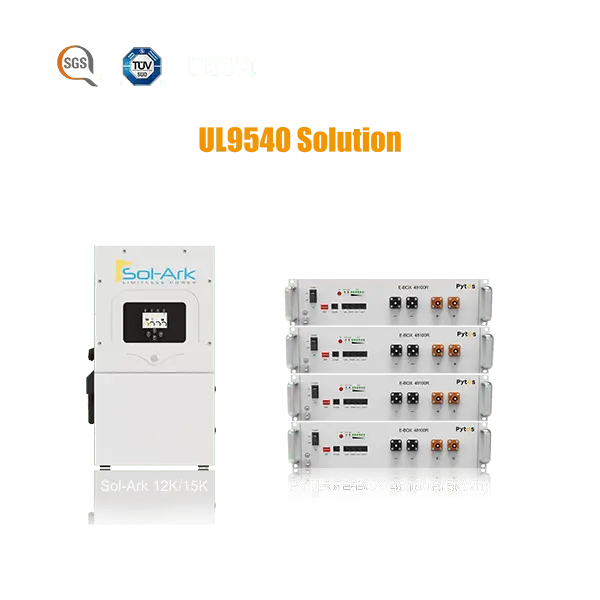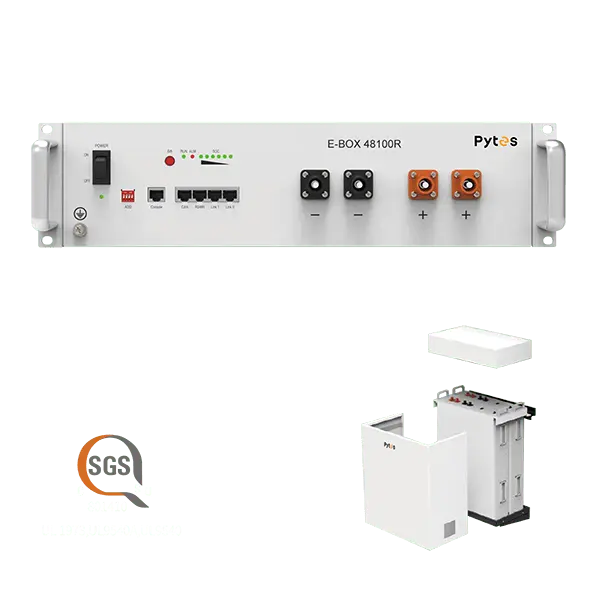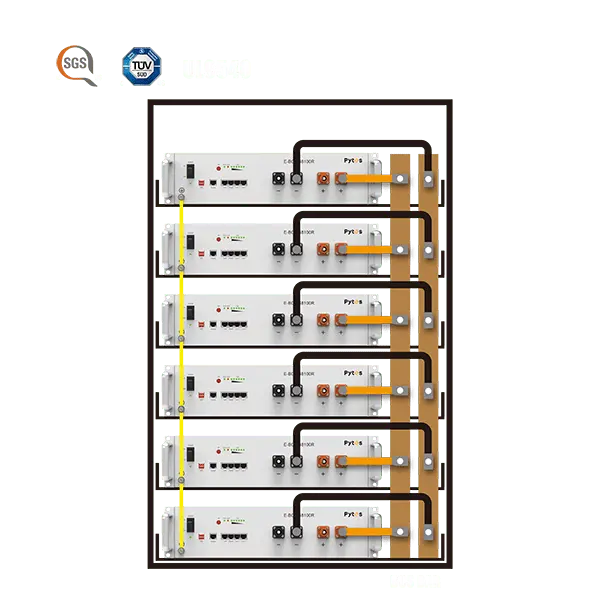Solar batteries store excess solar energy produced by solar panels to keep critical appliances running during times when the solar system is not producing energy or when there is a power outage.
Solar batteries offer many advantages, such as providing backup power, reducing dependence on utilities, and potentially saving more on your electricity bill.
Solar batteries are a good investment for homeowners whose utility company doesn’t buy solar power at the full retail price for electricity, want access to backup power, or want to maximize their renewable energy usage.
How Solar Batteries Work
Solar batteries store the extra solar energy produced by your panels, but not used immediately, so that you can extract it later.
Solar panels produce the most electricity during the middle of the day, when homes typically use the least energy. When batteries are installed, the panels can send the extra energy generated in the afternoon to the batteries. Then, after the sun sets and the panels are no longer producing electricity, the house draws power from the batteries.
Perhaps the biggest benefit of solar batteries is their ability to power appliances during a power outage. If the grid loses power, the battery kicks in and supplies power to the equipment it was designed to run.

Are There Solar Battery Incentives?
There are a number of solar battery rebates and incentive programs available throughout the country.
The biggest incentive is the 30% federal tax credit available in all 50 states. The tax credit equals 30% of installation costs and reduces what you owe in federal income taxes. Most solar battery installations will earn a federal tax credit of about $4,500!
Aside from the tax credit, utilities and states are opening more battery programs. Some are rebates that reduce the upfront cost of a battery, like California’s SGIP program. Others are virtual power plant programs, where the utility company pays you for access to the energy stored in your battery when grid demand is high.
What Impacts the Cost of A Solar Battery Installation?
There are many factors that affect the cost of batteries, such as the number of batteries you install, the batteries themselves, the labor costs of the installer, and where you live.
1.How many batteries have you installed?
This may seem obvious, but the more batteries you install, the more expensive your solar storage system will be. The number of solar cells you need depends on:
How many kilowatt hours of energy do you use?
The battery storage capacity
How many devices do you want to power?
How long do you want to power your appliances?
In most cases, one or two solar cells will store enough energy to meet your energy needs and provide backup power for some critical circuits in the event of a power outage.
2. Battery features and characteristics
Just like any other product you buy, the brand you choose will affect the price of your battery. This is because different brands offer different services and have different manufacturing processes. You can buy cheap batteries from unknown brands, but we always recommend using reliable, trustworthy brands like Pytes, with more than 10 years of experience in the industry.
The type of battery also affects its cost. Most of the time when people talk about solar batteries, there are lithium-ion batteries, lead-acid batteries, lithium-ion batteries are more expensive than lead-acid batteries but have the best performance characteristics.Within the lithium-ion battery category, one chemistry stands out the most: lithium iron phosphate (LiFePO4).
LiFePO4 batteries are known for their excellent safety characteristics, thermal stability and long cycle life. They are less prone to thermal runaway and do not pose a fire risk, making them a reliable choice for residential solar storage. LiFePO4 batteries also have higher tolerance to overcharge and over-discharge,ensuring longer service life and better performance.For example,Pytes E-Box-48100R,Pytes E-Box-48100R is an advanced solar battery storage system that can be used in off-grid, backup, zero output, time-sharing, demand response, peak shaving, and virtual power plant scenarios. It is also compatible with all leading inverters, making it easy to integrate into your existing solar system.Whether you are looking to replace an existing battery, expand your energy storage capacity, or embark on a new installation, this solar battery storage system is engineered to work seamlessly with all major inverter brands on the market. This compatibility offers homeowners the flexibility and convenience they need when it comes to their energy storage solutions.
Batteries with advanced features or integrated inverters may be more expensive than basic models. But the performance specs are much better than the base model's battery.
3. Labor costs and local markets
The labor required to install a battery system also affects the price of a home solar battery installation.
If the batteries are installed at the same time as the solar panels, labor costs may be lower because all electrical work and permitting associated with the solar system and battery system will be completed immediately.
However, if the batteries are added to the solar panel system after the fact, labor costs may be higher as new permits will need to be submitted, more incentive forms may be required, and some additional electrical work may need to be done to connect the batteries to Existing solar panels.
If your battery system has a large demand for batteries and you have to consider installation costs, etc., it is strongly recommended that you consider Pytes. Our professional technical team will customize an affordable battery system installation plan for you.

What Are the Advantages of Solar Batteries?
Backup power: Solar batteries can provide backup power during power outages. When connected to a solar panel system, the batteries can continue to power your home or business even when the grid is down, ensuring that you have electricity when you need it the most.
Energy Independence:
One of the significant advantages of solar Batteries is increased energy independence. With solar batteries, you can store excess solar energy generated during the day and use it during times when there is less sunlight, such as at night or during cloudy days. This allows you to reduce reliance on the grid and have a more consistent and reliable power supply.
Reduce your carbon footprint: Using solar energy stored in batteries maximizes the amount of renewable energy your home uses!
Potential Savings on Electricity Bills: If your utility company requires time-of-use billing or does not offer full retail net metering, you can save even more on your energy bills by installing a battery.

Conclusion
Are solar batteries worth it?Although combining solar panels with energy storage is becoming more common, that doesn’t mean it’s the only option for everyone. Whether a battery is worth it depends on what you want it to be used for.
If you want backup power, batteries are definitely worth considering, especially if you live somewhere with frequent power outages. Unlike a gas generator, you don't need fuel to fill the battery, and they're very quiet.
If you want to save money on your energy bill, you'll want to check your state and utility company's solar billing policies. If your utility company has a full retail net metering program, batteries won't save you any extra money. If your utility company requires time-of-use billing, you may see some savings, but the additional savings may be small depending on the rate.
Overall, batteries are worth it for homeowners who need backup power, don't have full retail network metering, or live somewhere with plenty of battery rebates and incentives.





